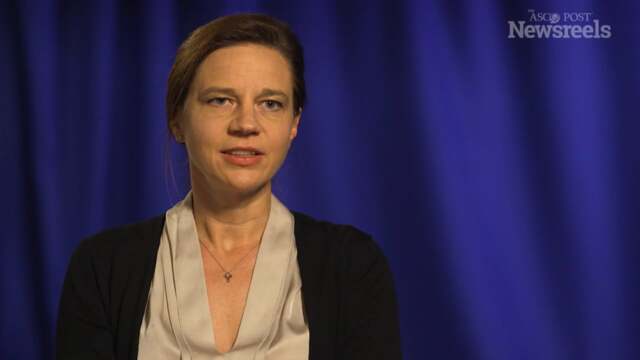Jung-min Lee, MD, on Ovarian Cancer: Study Results on Checkpoint Kinase Inhibitors
2016 ESMO Congress
Jung-min Lee, MD, of the National Cancer Institute, discusses findings of a phase II study of the cell cycle checkpoint kinase inhibitors LY2606368 and prexasertib monomesylate monohydrate in sporadic high-grade serous and germline BRCA mutation-associated ovarian cancer. (Abstract 855O)
Matthew J. Ellis, PhD, MB, BCh, of the Baylor College of Medicine, discusses phase III study findings on fulvestrant 500 mg vs anastrozole for hormone receptor-positive advanced disease. (Abstract LBA14)
Tony Mok, MD, of The Chinese University of Hong Kong, discusses the final overall survival analysis from this trial on gefitinib/chemotherapy vs chemotherapy in EGFR mutation-positive non-small cell lung cancer after progression on first-line gefitinib. (Abstr 1201O)
Alain Ravaud, MD, PhD, of Bordeaux University Hospital, discusses phase III findings on sunitinib vs placebo as adjuvant treatment for high-risk renal cell carcinoma after nephrectomy. (Abstract LBA11)
Katja Weisel, MD, of the University of Tübingen, discusses in German study findings on daratumumab, bortezomib, and dexamethasone vs bortezomib and dexamethasone in patients with relapsed or refractory multiple myeloma. (Abstract 906O)
Mansoor Raza Mirza, MD, of Rigshospitalet, Copenhagen University Hospital, discusses phase III study findings on maintenance therapy with niraparib vs placebo in patients with platinum-sensitive recurrent ovarian cancer. (Abstract LBA3)





